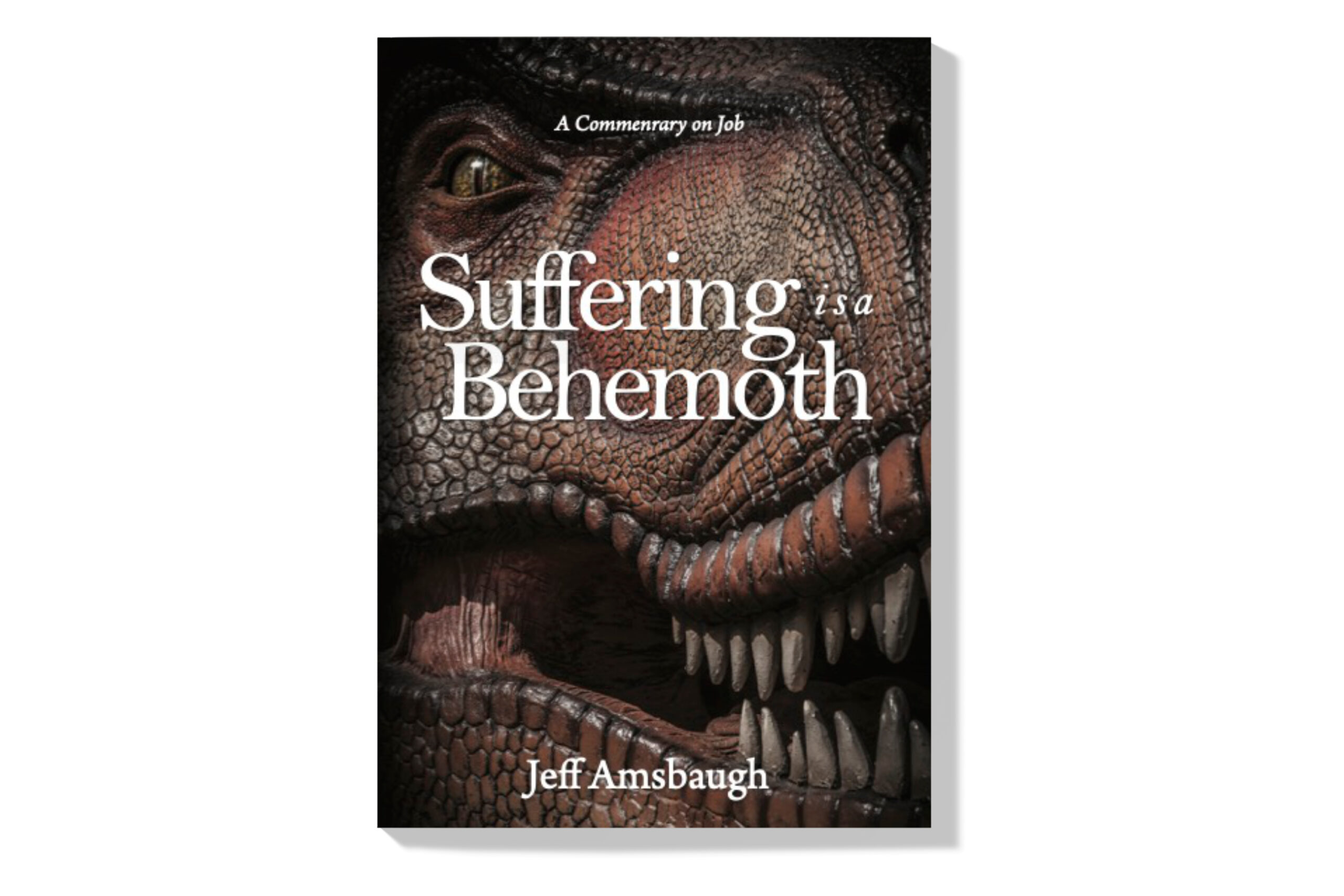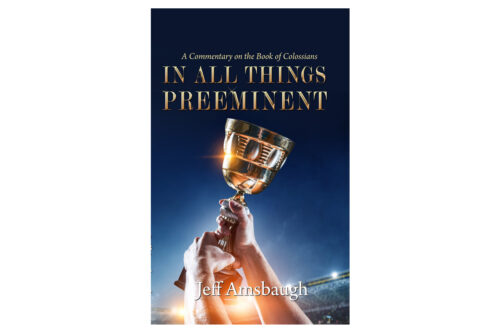-
Many believe that the major theme of Romans is justification by faith. This assumption, however, does not provide an occasion for the letter, forces the climax of Romans to be reached in chapter four, and diminishes chapters nine through eleven to a mere parenthesis in the epistle. While it is true that justification is by faith alone, Paul presents this truth as part of something bigger. All men are equally condemned, justified, sanctified, planned, and needed. Therefore, all men should be received regardless of their cultural, social, or economic background. Indeed, the Gospel has ramifications. It is not merely for the Jew. It is also for the Greek.
-
All too often, pastoral candidates are merely asked to preach a couple of sermons to a local assembly before the vote is taken to call them to lead a church. Indeed, we often refer to our pastors as “preachers.” But is there more to pastoral leadership than pulpit communication? What does God require of the man who would shepherd the flock? This commentary explores the books of I Timothy, II Timothy, and Titus to discover God’s plan for pastoral ministry.
-
If you have been saved for any length of time, you have probably seen some rift over Calvinism. Perhaps you feel uncomfortable believing that your lost relatives are unsaved because somehow God has not chosen them to salvation. That all having been said, however, you are not quite sure how this fits with the election passages of the Bible. In The Great Rift, Jeff Amsbaugh explores the roots of Calvinism and attempts to explain the five points of Calvin in light of God’s Word in order to help you the next time a rift over Calvinism comes your way.
-
It’s one of the ugliest, most damaging skeletons to come out of the closet—the unaddressed “elephant in the room” in Christian circles. The ever-growing presence and accessibility of obscene viewing has added to the strangle hold it’s taken on many lives. For many people, the battle rages daily. With all the shame and addiction surrounding pornography, where can someone truly searching for help turn to? In the book, Pay-Per-View, Jeff Amsbaugh not only address the real threat of pornography to Christianity, but shows relevant steps to win this critical war. The stakes are high—this shadowed enemy has scarred families, ended marriages, and mentally altered thousands! Please, count the cost and arm yourself against this lethal weapon of Satan today.
-
The book of Philippians is a missionary prayer letter, yet few theologians have commented on the missiological aspects of this epistle. In Keeping the Mission in the Missionary, Jeff Amsbaugh comments on the book of Philippines as a missionary prayer letter. In so doing, he provides a valuable tool for local churches to evaluate missionaries the are considering for support and for missionary candidates to evaluate the ministries before they go to the field.
-
The hallmark of orthodox Christianity is justification by faith. The thing that separates Christianity from every other religion is the fact that men are counted righteous before God by faith in the work of Christ independent of human merit. After we are saved, however, we sometimes feel that we must work for the smile of God. We believe that we are justified by faith but sanctified by works. Paul uses no other word but “foolish” to describe this mentality. In this commentary, you will learn that growth in the Christian life is accomplished by the same means as entrance into the Christian life - by grace through faith.
-
The children of Israel had returned from Babylonian captivity and were eagerly anticipating great things from the Lord. They had returned to their homeland and had rebuilt their temple. Fifty years later, however, expectations were very low. Joshua and Zerubbabel had both died. The glory of the Lord had not filled the temple as Ezekiel said it would. And the day of miracles had passed with Elijah and Elisha. This was an apathetic age, an uneventful waiting period. Malachi writes to his fellow Jews to give them cures for apathy. This commentary explores those cures and presents them as hope for our current apathetic age.
-
Though Nehemiah was privileged to live in the lap of luxury while serving as cupbearer to a Persian king, he left it all for the seemingly impossible task of rebuilding the city walls of Jerusalem. Obviously, he needed the help of God to mobilize a task force of Jewish workers. This commentary examines the prayer life, management skills, and tenacity of one of the Old Testament's greatest leaders.
-
Job’s belief in the sovereignty of God did not allow him the luxury of attributing his successive and severe calamities to secondary sources. It never occurred to him to blame natural disasters, human agents, or even the devil for his suffering. The Lord had given, and the Lord had taken away. Why did God grant the devil permission to afflict Job so severely seeing Job lived so righteously? Job seeks answers, and those provided by his friends are wholly inadequate. When God finally arrives on the scene, He does so, not to answer questions, but to question answers. For example, God asks Job, “Where were you when I made behemoth?” The behemoth, a massive land animal, serves no apparent reason for existence. And if a man tries to get ahold of it in order to analyze it, he only ends up injuring himself. The point is that suffering is a behemoth. We often don’t know why God allows it, and if we attempt to understand it more fully, we only end up injuring ourselves. We trust that this commentary will assist you in trusting God even when His ways are inexplicable.
-
Often we feel that a powerful apologetic is necessary to confront false religions and that courses in comparative religion are vital to evangelizing those from different faiths. When Paul, however, sought to rescue the Colossians from the Gnostic heresy that was pervading their town, he simply chose to exalt Christ. When Jesus is seen in all His glory, other faiths of necessity fade into the background. No competing system of thought can adequately replace the splendor of Jesus. Nothing can trump Christianity when Christ is in all things preeminent. We trust that this study of Colossians will help you see Jesus in all of His magnificence.
-
Esther lived in a materialistic society that was filled with antisemitic people who thought more of their personal advancement than the people of God who lived among them. In a day when women were treated as property, and Jews were thought worthy of extermination, God brought Esther to the throne for such a time as this. Through the help of Mordecai, the prayers of her fellow Israelites, and more importantly, through the invisible, providential hand of God, the tables were completely turned, and the Jews were protected while their enemies were destroyed. Thus, the book of Esther highlights the miraculous, protective intervention of God. Though the Lord is never mentioned in the book, He is present on every page. God is often most involved when His presence is not seen. The God of Esther can also help us in uncertain times by manifesting His presence through the lives of obscure volunteers for such a time as this.
-
Because many have recoiled from the fact that God would write a book about human sexuality, the Song of Solomon has often been allegorized as a book written to describe Christ’s love for the church. Does this mean that the book had to lay dormant for 900 years until the church was birthed? And how are we to explain God using Solomon, one of the worst husbands in history, to typify God’s love? Why is it that many who abhor allegorical interpretation are willing to accept it with regard to this Biblical work? In this commentary, we will discover that the Song needs no alteration or “deeper significance” to justify its place in the canon. To the contrary, this book will defend the fact that the proper use of human sexuality can turn a shepherd into a prince while its misuse can turn the world’s most celebrated sovereign into a beast. Indeed, God wrote the book of love.












